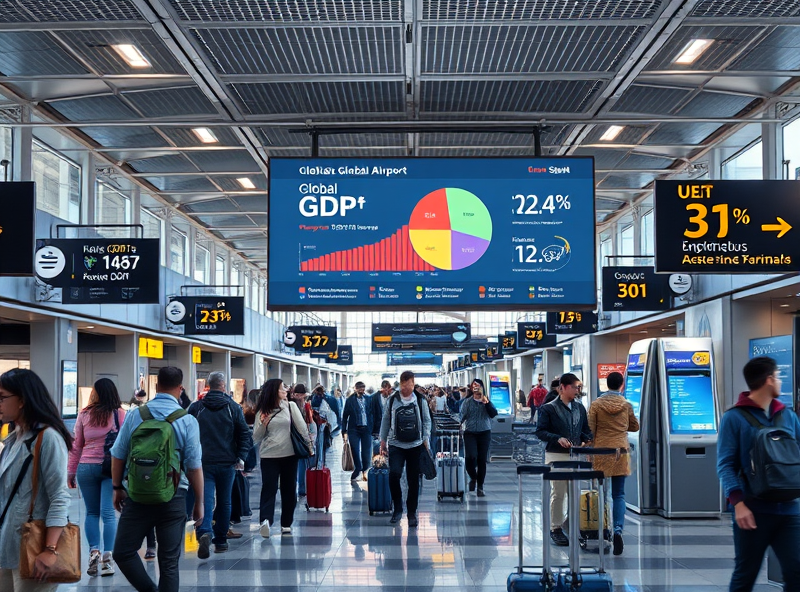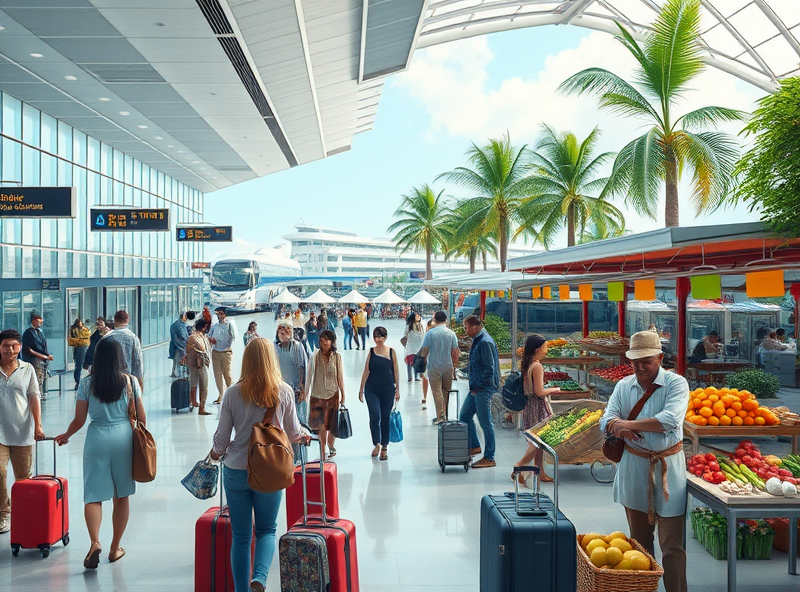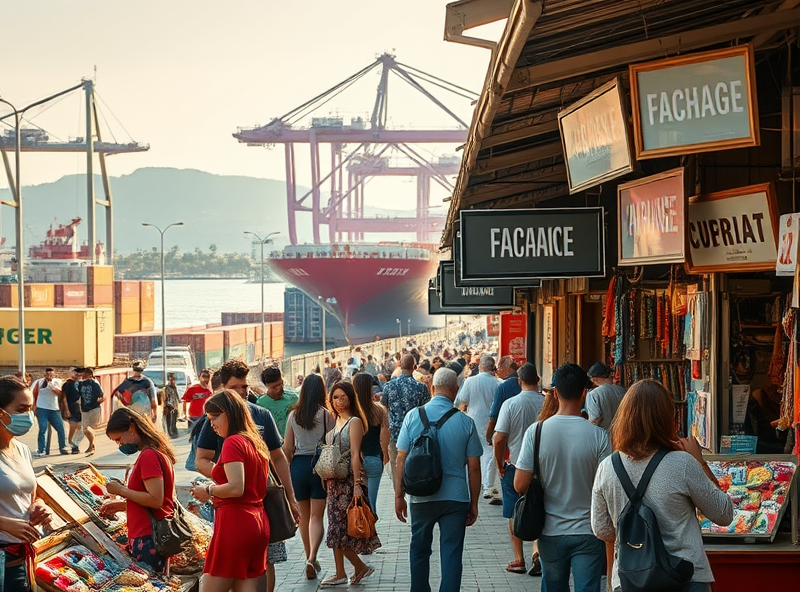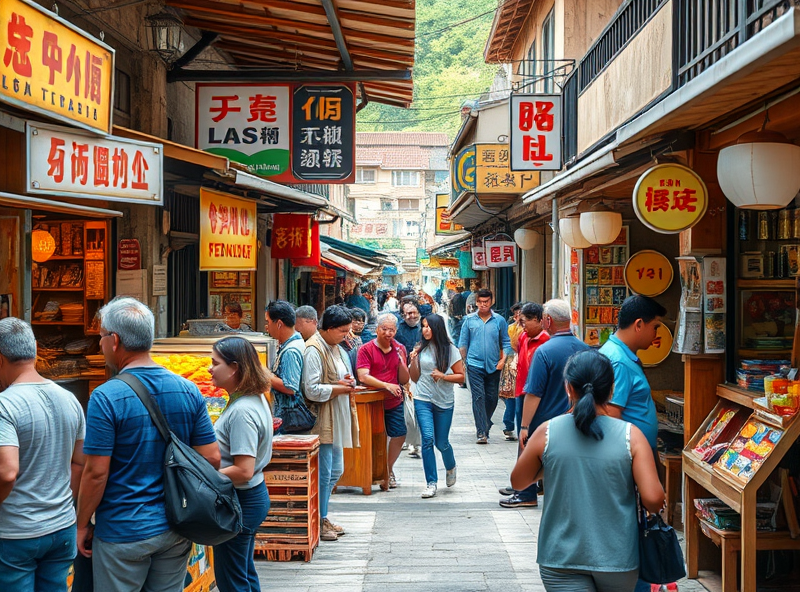
How Tourism Impacts the Global Economy: Jobs, Growth & Trade
Tourism’s Role in Global GDP Growth

Tourism is more than just a leisure activity—it’s a powerful economic engine that significantly contributes to global GDP. In fact, according to the World Travel & Tourism Council (WTTC), the travel and tourism sector accounted for 7.6% of global GDP in 2022, amounting to nearly $7.7 trillion. This figure underscores how vital tourism is in driving economic growth, especially in developing countries where it often serves as a primary source of income and employment.
Tourism stimulates GDP growth in several ways. First, it creates direct revenue through spending on accommodation, food, transportation, and entertainment. Second, it indirectly boosts other sectors such as agriculture, construction, and retail by increasing demand for goods and services. Third, it attracts foreign investment and encourages infrastructure development, which further enhances a country’s economic capacity.
For countries rich in natural beauty or cultural heritage, tourism offers a sustainable path to economic diversification. It reduces dependency on traditional industries and helps balance trade deficits by generating foreign exchange earnings. Moreover, the multiplier effect of tourism means that every dollar spent by a tourist can generate significantly more in economic activity.
To fully harness tourism’s potential, governments and businesses must invest in sustainable practices, workforce training, and digital transformation. Doing so not only maximizes economic benefits but also ensures long-term resilience and inclusivity in the sector.
Source: https://wttc.org/research/economic-impact
Direct and Indirect Job Creation Through Tourism

Tourism is more than just a leisure activity—it’s a powerful engine for job creation around the world. At its core, tourism directly supports employment in sectors like hospitality, transportation, and travel services. Think of hotel staff, tour guides, airline crews, and restaurant workers—these are all direct beneficiaries of tourism activity.
But the impact doesn’t stop there. Indirectly, tourism stimulates jobs in industries that supply goods and services to the tourism sector. For example, farmers who supply food to hotels, construction workers building resorts, or artisans creating souvenirs all benefit from the tourism value chain. This ripple effect helps diversify local economies and reduces reliance on a single industry.
According to the World Travel & Tourism Council (WTTC), in 2023, the travel and tourism sector supported over 330 million jobs globally—about 1 in 10 jobs worldwide. This includes both direct and indirect employment, highlighting how deeply tourism is woven into the fabric of the global economy.
For developing countries, tourism can be a lifeline, offering employment opportunities in regions where other industries may be limited. By investing in sustainable tourism, communities can foster long-term economic resilience and reduce poverty.
Source: https://wttc.org/research/economic-impact
How Tourism Boosts Trade and Foreign Exchange

Tourism plays a powerful role in enhancing international trade and generating foreign exchange earnings. When travelers visit a country, they not only spend on accommodation and food but also purchase local goods, crafts, and services. This increased demand supports small businesses and promotes the export of local products, as tourists often seek to buy souvenirs or specialty items that reflect the local culture.
Moreover, tourism encourages bilateral trade relationships. Countries that receive a high number of tourists often experience increased demand for their goods abroad, as visitors return home with a taste for products they encountered during their travels. This can lead to long-term trade partnerships and open new markets for local producers.
Tourism is also a key source of foreign exchange. When tourists spend money in a destination, they usually convert their currency into the local one. This inflow of foreign currency strengthens the host country’s reserves, helping to stabilize the economy and support imports of essential goods and services.
According to the World Travel & Tourism Council (WTTC), tourism accounted for 7.6% of global GDP in 2022 and supported 1 in 10 jobs worldwide, showing its vast impact on trade and economic resilience. [Source: https://wttc.org/research/economic-impact]
By supporting tourism, countries can foster stronger trade ties, diversify their economies, and build a more stable financial future.
Tourism’s Flexibility in Economic Uncertainty

In times of economic uncertainty, tourism has shown remarkable adaptability, acting as both a stabilizer and a catalyst for recovery. While many industries contract during downturns, tourism often finds ways to pivot—through domestic travel, budget-friendly experiences, and digital innovation like virtual tours and remote booking services. This flexibility not only helps sustain local economies but also protects millions of jobs worldwide.
For example, during the COVID-19 pandemic, many countries shifted focus to promote local tourism, which helped keep small businesses afloat and maintained employment in hospitality and transport sectors. Tourism’s relatively low barrier to entry also allows entrepreneurs to quickly respond to changing consumer behaviors, creating new services or repackaging existing ones to meet demand.
Moreover, tourism supports a wide range of ancillary industries—from agriculture and retail to arts and entertainment—making it a resilient pillar in the global economy. Governments that invest in tourism infrastructure and marketing often see quicker economic rebounds due to the sector’s multiplier effect.
According to the World Travel & Tourism Council (WTTC), the travel and tourism sector accounted for 7.6% of global GDP in 2022, showcasing its importance even during recovery phases. [Source: https://wttc.org/Research/Economic-Impact]







